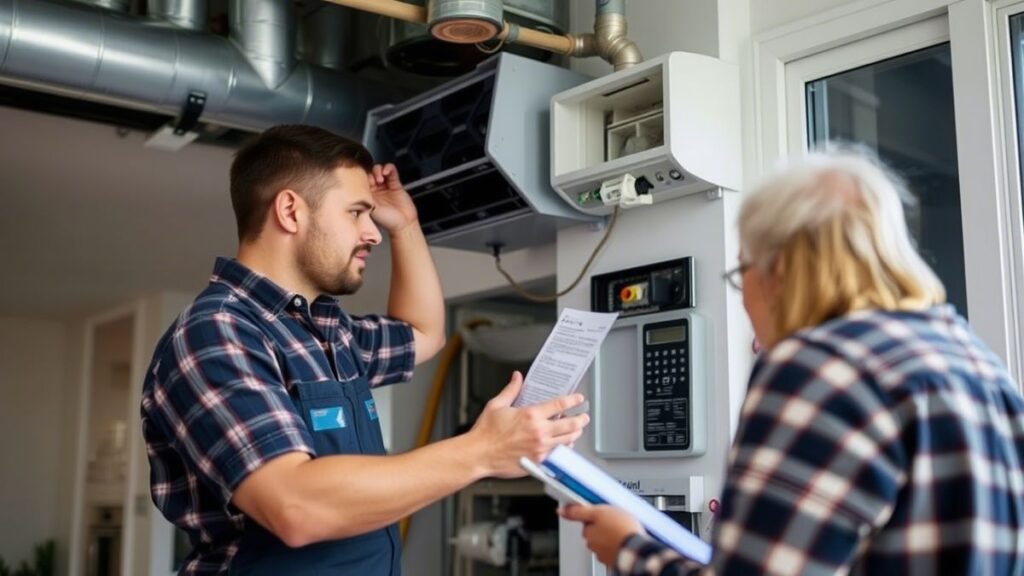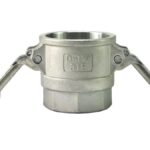Your HVAC system works hard year-round and needs regular maintenance to run efficiently. Skipping upkeep can lead to higher energy bills, poor air quality, and breakdowns. How often you should service it depends on factors like the system type and usage. Here’s why servicing matters and tips to keep it running smoothly.
Why Regular HVAC Maintenance Matters
Servicing your HVAC system isn’t just about avoiding breakdowns. It has a wide range of benefits, some of which you might not have considered:
1. Improved Efficiency
A well-maintained HVAC system uses less energy to heat or cool your home, keeping your energy bills lower. Over time, filters can clog, and components wear out, forcing your system to work harder and consume more power. Regular servicing ensures your HVAC system operates at peak performance.
2. Longer Lifespan
HVAC systems are a significant investment, and routine maintenance can extend their lifespan. By addressing minor issues early, you can help avoid costly repairs or even premature replacement.
3. Better Air Quality
Clogged filters and dirty ducts can circulate allergens, dust, and even mold. Routine servicing ensures cleaner air for you and your family, which is especially critical for those with respiratory conditions like asthma or allergies.
4. Fewer Emergency Repairs
A sudden breakdown in the middle of a heatwave or snowstorm is every homeowner’s nightmare. Regular checkups allow technicians to identify and fix potential problems before they escalate.
5. Warranty Protection
Many HVAC manufacturers require proof of annual servicing to honor their warranties. Failing to maintain your system could leave you with hefty repair bills that might otherwise have been covered.
How Often Should You Service Your HVAC System?
For most systems, a general rule of thumb is to schedule professional maintenance twice a year. HVAC experts typically recommend servicing your heating system in the fall and your cooling system in the spring. These pre-season tune-ups help your system transition smoothly into the demands of the upcoming season.
1. Air Conditioner
Your AC unit should be serviced once a year, ideally in the spring before the heat of summer sets in. Maintenance typically includes checking refrigerant levels, cleaning coils, and inspecting electrical connections.
2. Furnace
Similar to your AC unit, your furnace or heat pump should be serviced annually, preferably in the fall. Technicians will inspect components like the heat exchanger, burners, and pilot light to ensure everything is functioning safely and efficiently.
3. Air Filters
While full professional servicing may only be needed yearly, air filters need more frequent attention. Filters should be checked once a month and replaced every 1-3 months, depending on the type of filter and how much your system is used.
4. Ducts
Your air ducts should be inspected and cleaned every 3-5 years, or sooner if you notice visible debris, mold, or a sudden drop in airflow.
5. Thermostat
Although thermostats don’t require extensive maintenance, it’s a good idea to check their settings once a year to ensure they’re accurately reflecting indoor temperatures and operating as intended.
6. Commercial or Heavy-Usage Systems
If you use your HVAC system more heavily than average (e.g., in a commercial property), it’s wise to schedule professional servicing quarterly or seasonally. Heavy usage can accelerate wear and tear on the system.
Signs Your HVAC System Needs Immediate Attention
While twice-a-year maintenance is the gold standard, there are times when you may need to call in an HVAC professional sooner. Be on the lookout for these warning signs:
- Strange Noises: Loud banging, rattling, or squealing sounds could indicate loose or damaged components.
- Uneven Temperatures: If some rooms are too hot or too cold, your HVAC system might not be distributing air evenly.
- Rising Energy Bills: A sudden spike in energy costs often signals reduced efficiency due to underperforming components.
- Poor Airflow: Weak or inconsistent airflow could mean a clogged filter, duct blockage, or fan issue.
- Unusual Smells: Musty or burnt odors coming from your vents could indicate mold growth or electrical problems.
- Frequent Cycling: If your system turns on and off frequently, it may be struggling to maintain the desired temperature.
Don’t ignore these signs! Prompt repairs can prevent minor issues from turning into major headaches.
DIY Maintenance Tips to Supplement Professional Servicing
While professional maintenance is essential, there are several things you can do between service appointments to keep your system running smoothly:
- Replace Filters Regularly: Swapping out old filters is one of the easiest ways to ensure proper airflow and prevent dust buildup, especially during AC repair like that in Ogden.
- Keep the Area Around Units Clear: Outdoor units should be free of debris, vegetation, and obstructions to allow for proper airflow.
- Check Thermostat Settings: Ensure your thermostat is set to an energy-efficient temperature and schedule.
- Clean Air Vents: Dust and vacuum your vents regularly to prevent airborne particles from circulating.
- Inspect for Leaks: Look for signs of water or refrigerant leaks around your unit and address them promptly.
Conclusion
Regular HVAC servicing is an investment in the comfort, health, and efficiency of your home. By scheduling professional maintenance at least twice a year and staying vigilant for signs of trouble, you can save money, extend the life of your system, and enjoy a cozy home in every season.







